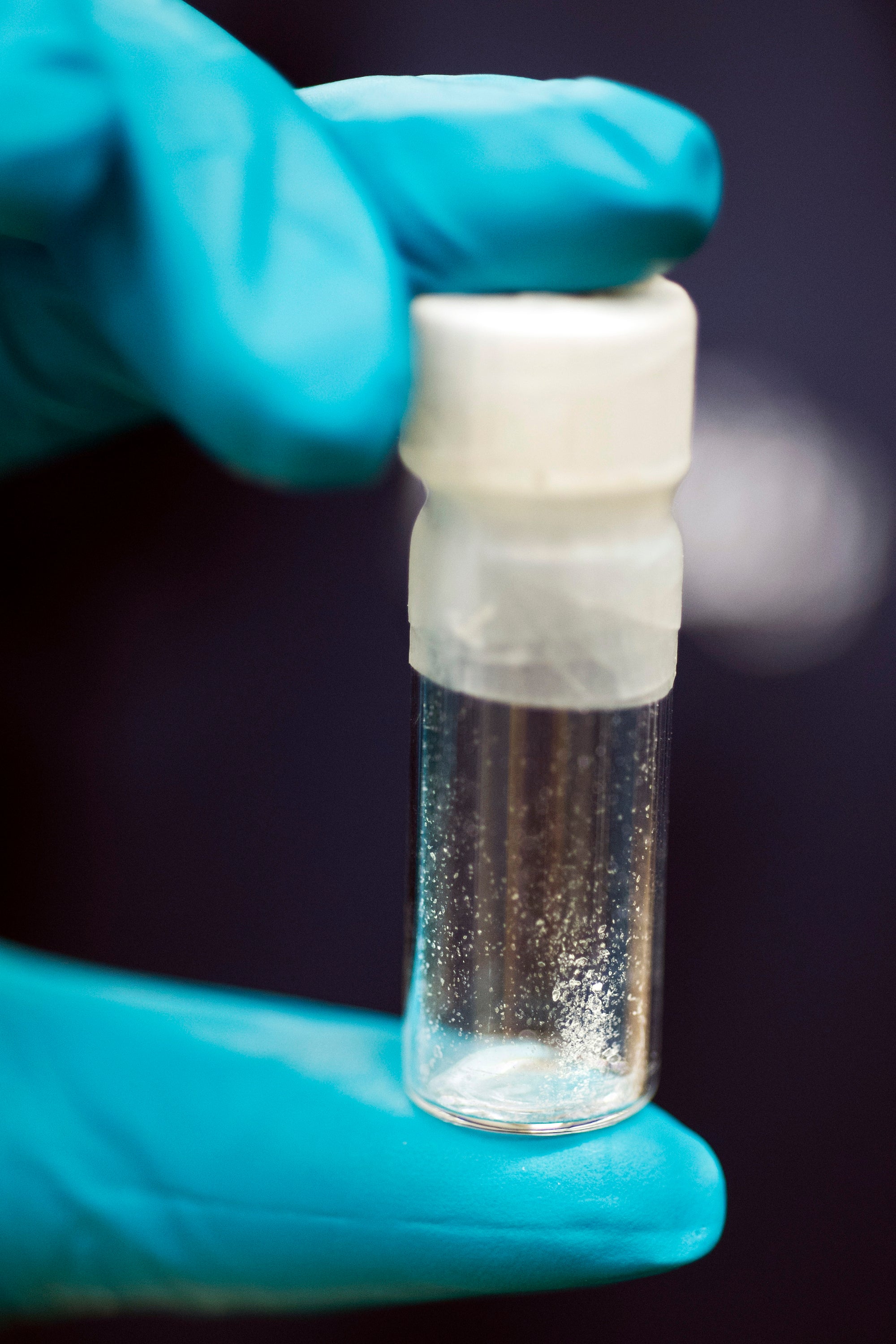US announces sweeping action against Chinese fentanyl supply chain producers
The US is announcing a series of indictments and sanctions against 14 people and 14 firms across China and Canada related to the import of fentanyl into the United States

Your support helps us to tell the story
From reproductive rights to climate change to Big Tech, The Independent is on the ground when the story is developing. Whether it's investigating the financials of Elon Musk's pro-Trump PAC or producing our latest documentary, 'The A Word', which shines a light on the American women fighting for reproductive rights, we know how important it is to parse out the facts from the messaging.
At such a critical moment in US history, we need reporters on the ground. Your donation allows us to keep sending journalists to speak to both sides of the story.
The Independent is trusted by Americans across the entire political spectrum. And unlike many other quality news outlets, we choose not to lock Americans out of our reporting and analysis with paywalls. We believe quality journalism should be available to everyone, paid for by those who can afford it.
Your support makes all the difference.In one of the biggest actions the administration has taken against fentanyl trafficking, the U.S. on Tuesday announced a series of indictments and sanctions against 14 people and 14 firms across China and Canada related to the import of the drug to the United States.
Leaders from the Treasury, Justice and Homeland Security departments, the Drug Enforcement Agency and the U.S. Postal Inspection Service are set to gather at Justice Department headquarters Tuesday afternoon to outline the administration's latest action against what it calls a “major China-based syndicate” that sold chemicals to American drug dealers and Mexico-based cartels. All but two of the firms and one of the people targeted are based in China.
Mexico and China are the primary sources for fentanyl and fentanyl-related substances trafficked directly into the U.S., according to the Drug Enforcement Administration, which is tasked with combating illicit drug trafficking. Nearly all the precursor chemicals that are needed to make fentanyl are coming from China.
“It’s the latest step in the rapid scaling up of our work targeting the financial flows that power the global illicit drug trade,” said Treasury’s Deputy Secretary Wally Adeyemo in a prepared speech. Adeyemo said Treasury is also seeking out the friends, family members, and affiliates of the people who benefit from drugs sales.
“If you benefit from the proceeds of this illicit activity, we are going to come after your assets,” he said.
U.S. officials said the operation targeted networks that traffic xylazine, a powerful sedative for veterinary use that is routinely mixed with fentanyl, into the U.S.
Among the firms targeted is a pharmaceutical company that officials say advertises the sale of fentanyl precursors to Mexican customers as well as sales representatives alleged to have done business with a Mexico-based drug trafficking organization.
Other targets include a China-based company that officials say has provided pill dies for counterfeit oxycodone M30 tablets.
This latest action comes after a series of actions were taken this year against members of the Sinaloa cartel out of Mexico, cash couriers and cartel fraud schemes.
Republicans have complained, however, that the administration isn’t doing enough to stop fentanyl and the issue is likely to figure prominently in next year's presidential campaign.
In February, 21 Republican state attorneys general wrote a letter to President Joe Biden and Secretary of State Antony Blinken calling on them to designate Mexican drug cartels as foreign terrorist organizations. And last year a group of Republican attorneys general asked the president to declare fentanyl a weapon of mass destruction. No such actions have been taken.
Fentanyl, a powerful opioid, is the deadliest drug in the U.S. today. The Centers for Disease Control and Prevention states that drug overdose deaths have increased more than sevenfold from 2015 to 2021.
More than 100,000 deaths a year have been linked to drug overdoses since 2020 and about two-thirds of those are related to fentanyl. The death toll is more than 10 times as many drug deaths as in 1988, at the height of the crack epidemic.
The U.S. has taken a slew of actions to stem the tide of fentanyl coming into the country. Overall, the Biden administration has imposed over 200 sanctions related to the illegal drug trade.
And state lawmakers nationwide are responding to the deadliest overdose crisis in U.S. history by pushing harsher penalties for possessing fentanyl.
In a speech at the Family Summit on Fentanyl last week, Attorney General Merrick Garland said the Justice Department is sending out some $345 million in federal funding over the next year, including money to support mentoring for at-risk young people and increase access to the overdose-reversal drug naloxone.
On Capitol Hill, a bipartisan group of legislators out of the Senate Banking and Armed Services committees have introduced legislation that would declare fentanyl trafficking a national emergency and prod Treasury to use its sanctions authority to quell the proliferation of the drug in the U.S.
It would also impose reporting requirements and enable the president to confiscate sanctioned property of fentanyl traffickers to use for law enforcement efforts.
__
Associated Press reporter Lindsay Whitehurst in Wilmington, Delaware, contributed to this report.